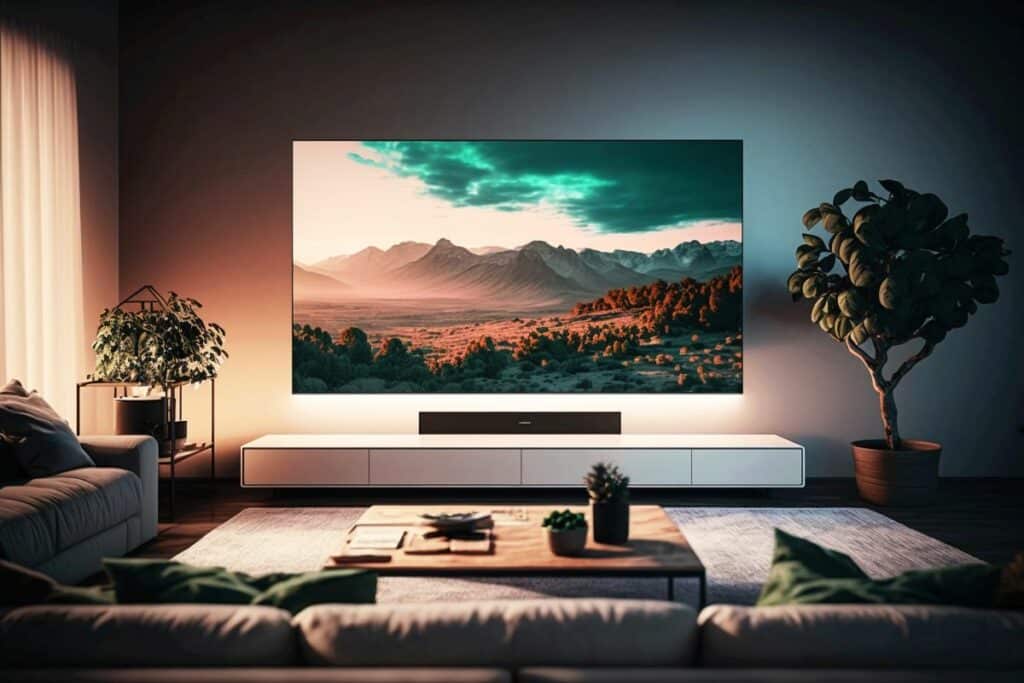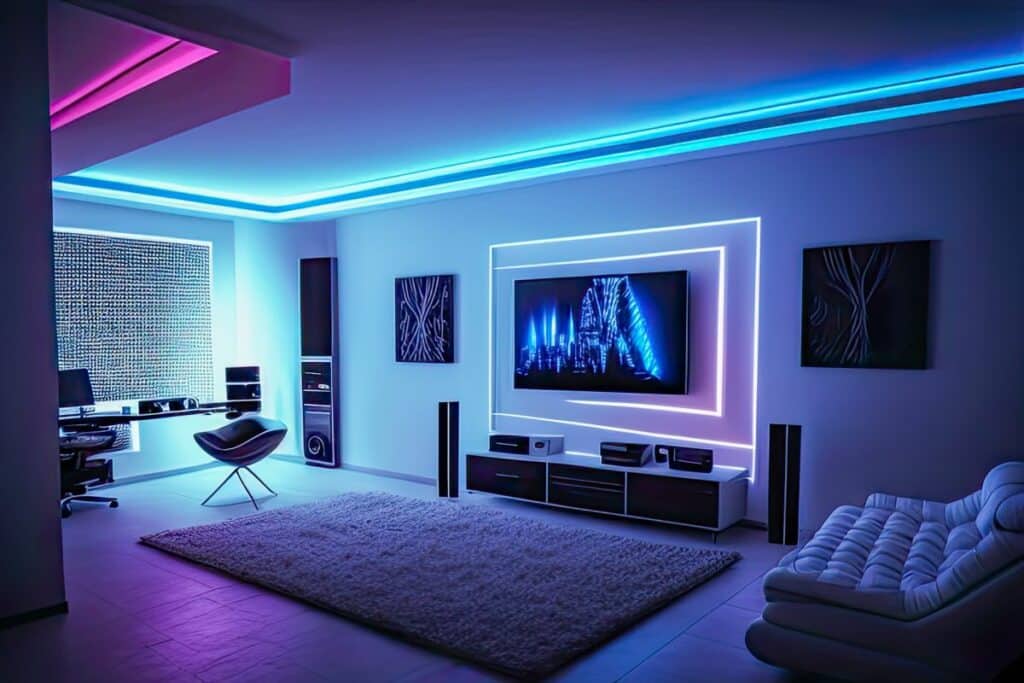the essentials in brief
Identify the technologies different backlighting techniques.
The different techniques offer individual advantages and disadvantages.
OLED screens offer the most authentic black compared to LED and LCD.
In the world of screen technology, it is sometimes difficult to keep track of the different technologies. LCD and LED are two of the most commonly used technologies in the manufacture of TVs and monitors. But which one is better? In this article, we compare both technologies so you can make an informed decision.
Contents
LCD and LED: what's the difference?
First, it's important to know that LED TVs are actually a subcategory of LCD TVs. The main difference lies in the type of backlight. LCD stands for "Liquid Crystal Display' and uses a cold cathode fluorescent lamp (CCFL) as the light source. LED, on the other hand, stands for "Light Emitting Diode' and uses LEDs for the backlight.

Picture quality: LCD vs. LED
Picture quality is one of the most important factors when choosing a TV. In general, LED TVs offer better picture quality than LCD TVs. The LED backlight allows colors presented more precisely and vividly be used, resulting in higher color accuracy. In addition, LEDs enable a higher contrast and deeper black tones compared to LCDs. Despite this, some high quality LCD TVs can still provide satisfactory picture quality.
Energy efficiency: LCD vs. LED
One of the main advantages of LED TVs is their energy efficiency. LEDs consume less energy compared to CCFLs in LCD TVs. This means that an LED TV can save you money on your electricity bills in the long run. If energy efficiency is important to you, you should consider an LED TV.

OLED: An alternative to LCD and LED
OLED stands for "Organic Light Emitting Diode' and is another screen technology that differs from LCD and LED. OLEDs offer one even better image quality than LEDs, as they use extremely thin layers of organic compounds that are themselves luminous. This eliminates backlighting and color filters, resulting in a higher contrast ratio, more vivid colors, and faster response times. However, OLED TVs are often more expensive than their LCD and LED counterparts.
Which is better: LCD, LED or OLED?
To decide which screen technology is better, we need to compare the pros and cons of LCD, LED, and OLED. Choosing the best technology depends on your personal preferences and intended use away. Below we compare the strengths and weaknesses of each technology.

LCD
LED
OLED
LED (Light Emitting Diode), LCD (Liquid Crystal Display), and OLED (Organic Light Emitting Diode) are all types of display technologies used in electronic devices such as televisions, computer screens, and smartphones.

LED displays offer a high brightness and energy efficiency, but are typically not as thin as OLED displays. LCD displays use liquid crystals and are cheaper than OLED displays, however, usually do not offer the same picture quality and black level.
OLED displays are known for their outstanding picture quality, color accuracy and contrast ratios, as well as for their extremely thin construction. However, OLED displays tend to be more expensive than other display technologies and can be more prone to burn-in due to the organic materials they are made from.
Overall, all three technologies have their pros and cons, and the choice ultimately comes down to individual needs and budget.
Which TV is best for you?
The Decision between LCD, LED and OLED depends on yours individual needs and preferences away. If you are looking for a cheap TV and picture quality is not your top priority, an LCD TV can be a good option. However, if you value better picture quality and energy efficiency, you should consider an LED TV.

If you're willing to spend a little more money and want top-notch picture quality, an OLED TV might be your best bet. Either way, it's important to compare different models and read customer reviews to find the best TV for you.
FAQ about LCD, LED and OLED technologies
The main difference lies in the type of backlight. LCD TVs use cold cathode fluorescent lamps (CCFL) while LED TVs use light emitting diodes (LEDs) for the backlight.
LED TVs are more energy efficient than LCD TVs because LEDs use less energy than CCFLs.
An LCD TV can be a good choice if you are looking for an inexpensive TV and picture quality is not your top priority. High-quality LCD televisions still offer satisfactory picture quality.
The best technology depends on your personal needs and budget. In general, OLED TVs offer the best picture quality, followed by LED and LCD TVs. However, LED TVs are more energy efficient than LCD TVs and cheaper than OLED TVs.
Yes, OLED TVs tend to be more expensive than LCD and LED TVs because they use more advanced technology and offer superior picture quality.
OLED TVs offer outstanding picture quality with high contrast, deep blacks and vivid colors. They also enable extremely thin screens and fast response times.
A disadvantage of OLED TVs is their higher price compared to LCD and LED TVs. In addition, OLED TVs have some risk of burn-in when displaying static images for long periods of time.
It's important to compare different models, read customer reviews, and consider your unique needs and budget to find the best TV for you.
